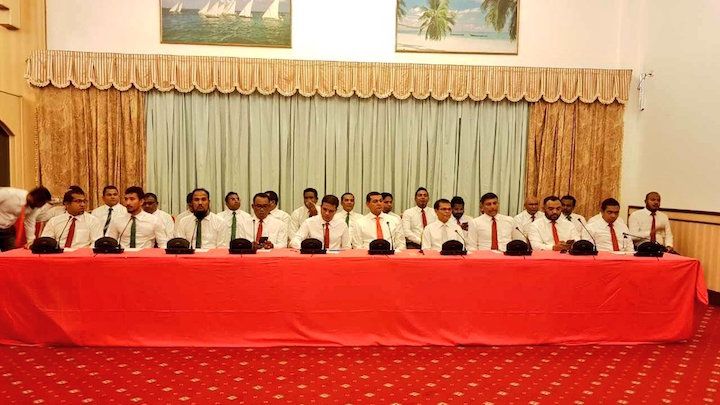PPM backs anti-defection ruling from Supreme Court
Nine MPs have left the Progressive Party of Maldives after the Attorney General sought the anti-defection ruling, dramatically shifting the balance of power in the 85-member house ahead of the July 24 no-confidence vote against the speaker.

11 Jul 2017, 09:00
The joint parliamentary group of the ruling coalition declared support today for a Supreme Court ruling that would tie lawmakers to political parties and strip defectors of their seats.
Several MPs left the Progressive Party of Maldives on Monday after the Attorney General sought the anti-defection ruling, dramatically shifting the balance of power in the 85-member house ahead of a no-confidence vote against the speaker.
At a press conference Tuesday morning with 28 MPs from the PPM and ally Maldives Development Alliance – including four who were elected on other political party tickets – senior lawmakers contended that a legal remedy for party switching is long overdue.
“We were in dire need of a law to overcome this problem when the constitutional case was submitted as a public interest litigation,” said MP Ahmed Nihan, the PPM’s parliamentary group leader.
Become a member
Get full access to our archive and personalise your experience.
Already a member?
Discussion
No comments yet. Be the first to share your thoughts!
No comments yet. Be the first to join the conversation!
Join the Conversation
Sign in to share your thoughts under an alias and take part in the discussion. Independent journalism thrives on open, respectful debate — your voice matters.




